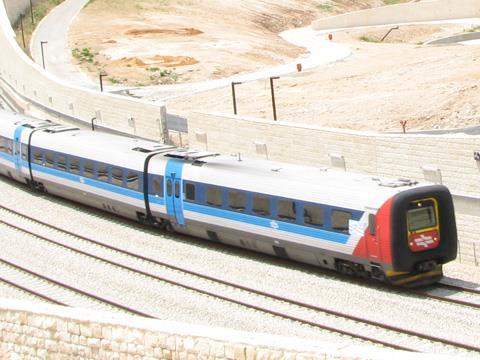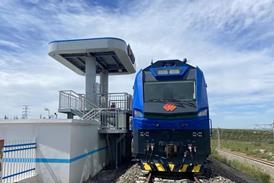
ISRAEL: ISR is predicting stronger growth in passenger traffic during 2009 as a result of the global economic downturn. Announcing the railway’s annual plan and preliminary results for 2008 on January 28, General Manager Yitzhak Harel said the railway was preparing for a rise of between 11% and 13% during 2009 rather than the previous forecast of 8%. He attributed this to passengers preferring to use rail as it provided ‘a safer and cheaper service over the private car’.
Given that ISR’s plans to buy extra rolling stock cannot be accelerated, Harel has asked the Finance Ministry to endorse a revised tariff structure which will both strengthen the railway’s position in the recession and introduce a 20% to 25% off-peak discount to encourage passengers out of the overcrowded peak periods.
Harel also wants clearance to issue debenture bonds raising between US$125m and US$250m to support network development. This would ‘offer a double contribution to the economy’ by creating new jobs and stimulating institutional investment, he believes, suggesting that the railway is ‘a dominant locomotive for developing the Israeli economy’.
Last year was ‘very successful’, with ISR achieving a strong performance. Passenger traffic grew by an average of 10·5%, and by 14% on suburban routes thanks to the opening of the line to Modi’in and a new station at Petakh-Tikva Kiryat-Arie. Average punctuality was 91·3%, the best for a decade, and revenues of US$125m allowed ISR to cut its operating deficit by US$15m compared to the previous year.
During 2008 ISR invested US$425m in infrastructure, rolling stock and safety systems, including the recently-completed network control centre at Haifa (RG 2.09 p8). The first three of 10 major grade-separation projects were completed, eliminating dangerous level crossings, and the rest are to be completed within three years.



































